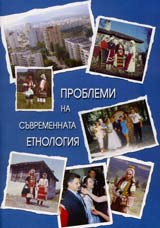
We kindly inform you that, as long as the subject affiliation of our 300.000+ articles is in progress, you might get unsufficient or no results on your third level or second level search. In this case, please broaden your search criteria.






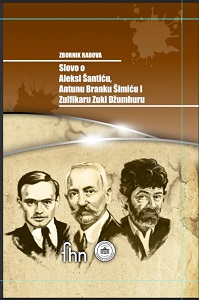
In this article, the author analyzes the development of historiography in the past thirty years. She stresses her opposition to the predominant influence of ideology, and at the same time she questions the new directions and viewpoints in historical research and professional historiography. She draws attention to the appearance of a lack of certainty among historians as a consequence of polemics and the effect of postmodern points of view. Her conclusion is that despite these developments, new approaches can produce valuable scholarly results and justifies historical research. Ambiguous in the intermediate communication intertextual creativity Zuke Džumhur defined in specific trend travelogue minimalism where he created an attractive and very distinctive style of travel writing . His travelogue a crystal are close to his daily habits in communications with the man , the work place and in which resides. Džumhur skillfully , with certain historical constants writes about what he saw then what is heard , and only after that what is felt and eventually what he meant. Džumhur travelogue records are scientific / geographic- historical- ethnographic/, often šehren - giz / travelogue/, but the pilgrimage, chronicles, sometimes memoirs. Presentation: Historical minimalism in travel Zulfikara-Zuke Džumhura, a basic guideline that, in addition it is a great itineraries true literary creations, indicate that there is, in fact, preserves the incentive and the historic core of minimalism, interesting connective tissue that connects the past, literary observation but it upgraded and surpassing long duration of history. This combination of minimalism and historical travelogue Džumhur “hodoljublja“ through unforced communication and distinctive gift to the limit extends the possibility that the Džumhur travelogue videos covering travel, walk and recognize the past tense.
More...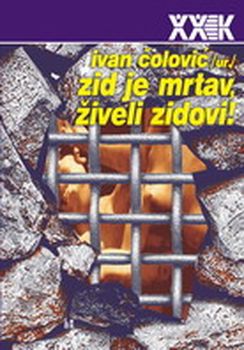


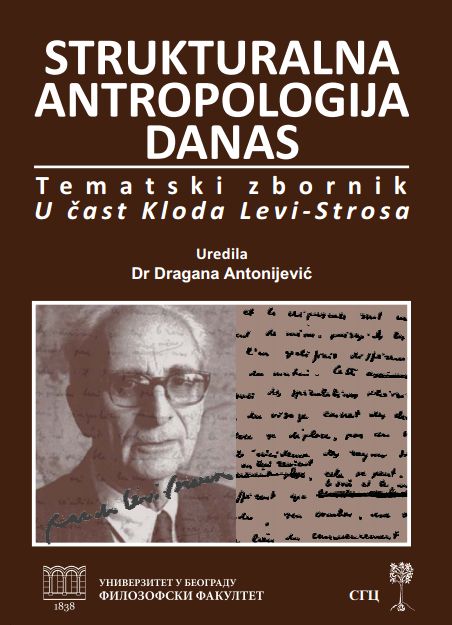
Modernisation of Serbian ethnology/anthropology in the second quarter of the twentieth century was marked by structuralism. More precisely, structural analysis that became a must of the analytical interpretation was based on the work of Claude Levi-Strauss, but also on those of the predecessors of structural analysis, like Van Gennep and Propp; British followers of structuralism like E. Leach and M. Douglas, as well as on the Russian semiotic school and Barth's semiology. Ta-king aside predecessors of structural analysis, main sources of Serbian structural-semiotic revolution came from Levi-Strauss structural anthropology. When in the 1970s Serbian readers faced anthropological books coming from different intellectual backgrounds and re-presenting major theoretical trends in anthropology, Serbian ethnology, firmly based on its hundred years old romantic roots, gave equally opportunities to all theoretical approaches that fought for the intellectual domination in the discipline. This paper tries to answer the question why structural analysis played a crucial part in the modernisation of Serbian ethnology/anthropology, while the ideas coming from functionalism, culture and personality school, or neoevolutionism did not have the same revolutionary and deep impact.
More...
Taking into account recent critiques of “underdevelop-ment”, “positivism”, “methodological backwardness” and ot-her failings attributed to so-called •American Anthropology‡ by some of the authors from the Belgrade Structural-semio-tic School of Anthropology of Folklore, I analyse the context in which colleagues and students may be tempted to explain common sense political connection between polyphone ethnography, neo-romanticism and nationalism as counter-in-tuitive history of the discipline. I already pointed that the important transformative dif-ferences in the attitudes towards structuralism between European anthropologists, especially Belgrade Structural-semiotic School of Anthropology of Folklore and so called American Anthropology, are the conseˆuence of a pure co-incidence ` the fact that French structuralism and French poststructuralism were launched simultaneously at the Ame-rican interdisciplinary intellectual scene (“Theory”) at the same conference. This ironic concurrence would not be much more than one entertaining episode for students, hi-storians of anthropology and historians of ideas, if there we-re no attempts (more and more frequent and increasingly fluently articulated) to compare different intellectual traditions as they were elements of the same unilineal evolution of the discipline. Belgrade Structural-semiotic School (further called only SS) and especially its spiritus movens and most prominent representative Prof. Kova evi started in recent years to criticise some “American Anthropology” measuring its” academic achievement” (the author's term) in comparati-ve perspective and taking as an analytical unit uncritically generalized traditions marked with a single term of “post-modern anthropology” on the one hand, and “anthropology” on the other. Belgrade SS School did develop globally original, although badly promoted and never fully used, battery for the synchronic analysis of the folklore phenomena, but this was done only after Leach, Needham, Schneider and representa-tives of ethnoscience and cognitive anthropology had al-ready adapted Levi-Strauss's ideas about mind and science to ethnographic phenomenology. Transformation of Levi-Strauss's analysis and limited success of its adaptation to the analysis of phenomena that usually concern anthropo-logy happened simultaneously with the development of the critique of structuralism as a theory of culture in the Ameri-can academic scene. This proves a theory that there is at le-ast one “Atlantic split”, analogue to that in philosophy, morethan it makes a relevant context for measuring of the com-parative “academic achievements” of the specific and uncon-nected disciplinary traditions. Indirectly, this paper explains that Levi-Strauss's work has contradictory functions in the history of ideas in anthropo-logy, serving as a starting point for •postmodern” neo-romantic and positivistic critique of imperial realism (in USA), as well as •enlightened”, realistic and anti-tribal critique of ethnology as positivistic, nationalistic and national science (in Serbia). In this paper, special emphasis is placed on the local context in which structuralism as a founding discourse of anthropology is opposed to ethnology as national prose. As such it had completely different role in comparison to struc-turalism in a) the history of American anthropology and b) in the history of interdisciplinary/postmodern Theory.
More...
These are two authors, in Foucauldian terms that certainly belong to the most influential individuals in socio-cultural anthropology, as well as in the social sciences and interdisci-plinary research more broadly. Claude Levi-Strauss became some kind of an intellectual hero during the domination of structuralism in the mid-twentieth century and during the 1960s, while Clifford Geertz was an icon and ambassador of anthropology in the second half of the twentieth century. They are both one of the founders of the discourse theory. They not only established a distinct theoretical approaches and methods structural (Levi-Strauss) and interpretative anthropology (Clifford Geertz), but through their intellectual authority they also inspired paradigms and intellectual move-ments making structuralism and interpretation of culture more than some passing episodes in the history of social tho-ugh (in terms of trendy ideas ). My aim is to make some parallels between these two aut-hors, who despite all the differences that are evident in their epi-stemological discourses, theoretical approaches and methods (as well as in their ethnographic and anthropological writings it-self) still have some similarities in their theorisation and inter-pretation of culture, which I would like to stress in this paper.
More...
The author examines possible analogies between Kant's transcendental idealism and de Saussure's and Levi-Straus's structuralism, in order to analyse if the former can be understood as a predecessor for the later. The author shows that both teachings assume a priori formal framework, but they diverge in the ways they describe it, as well as in un-derstanding of its function. Consequently, the author concludes that structuralism can be seen as one possible use of Kant's idea about the existence of such a frame. Furthermore, the author claims that Ricker's understanding of structu-ralism as “Kantianism without transcendental subject” should be rejected, since a teaching which does not assume existence of such subject cannot be understood as Kantian.
More...
This paper discusses Levi-Strauss engagement in UNESO activities. On the one hand, Levi-Strauss engagement in Pakistan had an important impact on his later work, as well as on his overall view about the world and culture(s); while on the other, Levi-Strauss's definitions of the relationship between race/nation and culture had an important influen-ce on the ways in which UNESO dealt with the ideas about culture and on the ways these ideas were implemented in its global strategies of action in/towards culture. On the one hand, this engagement included a delivery of the European world view (as a superior one) to everyone who does not have it; while on the other, it also meant a protection of ma-terial remains of different cultures world-wide and protec-tion of non-material heritage and/as entire 'Othernness', whenever it is located, and (at least in theory) however it looks like. In that sense, Levi-Strauss public engagement had an important impact not only on anthropology, as a discipli-ne that he dedicated his life to, but also to the formation of contemporary understanding of politically correct relationship towards the 'Other'.
More...
This paper is dedicated to Claude Lévi-Strauss and his structural reading of opera as metaphorical 'composing' of an anthropological grand opera, materialized in the four-volume study of Mythologiques, which refers to Wagner s tetralogy of The Ring. He created a type of comparative view of the fun-ction and structure of myth schemes in Amerindian culture and the orchestral scores of Wagner s operas, and implicitly signalled that European music, with its eminent representation opera has had the same value or similar symbolic position in the mind and life of a contemporary European that myth has had in the savage mind . Through this, he can lead us to the understanding of opera as myth and metaphor. However, the paper extends the discussion on Lévi-Strauss to a broader historical picture of the relationship between opera and mythology as two symbolic systems of European culture
More...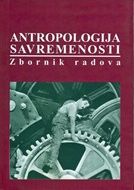
Diverse range of subjects that Richard Dorson handled, or had vehemently dealt with or confronted, addressing many disciplinary quarrels, even today presents a benchmark to numerous scientists who, following his theoretic and methodological lead, approach diverse element of the folklore creativity. In his final years, Dorson and his students, made pioneering leaps in successfully obtaining and interpreting folk traditions of the industrialized Midwest. Dorsons presentation of the novel research area within folklore studies, in his seminal publication Land of the Mill Rats, bequests the question ‘Is there folk in the city’, is there a place for folklorists in modern industrial society’, and as we shall demonstrate in this essay, such a question for him and his followers had implications for scientific goals of defining expressions as behavior, i.e. the understanding of human existence. This creation of a historic and contemporary fieldwork amalgam brings Dorson to the epicenter of urban-industrial America, and its new folklore.
More...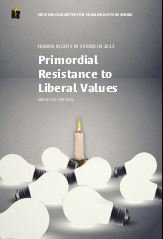
Thirteen years after the change of the regime (2000) Serbia is still transition-stuck. Reforms have been slow and half-done. Actually, only a synergy of international integrations, responsible political elites and large social movements would have made them possible. And there has been no such synergy since 2000. Economic reforms have been stagnating: Serbia’s economy is still far from an acceptable level of development. Overall progress also hinges on a political system: and that system has not been changed yet in Serbia. And then, the global financial crisis that affected Serbia too set the public opinion against reforms. According to EBRD indicators, reformist moves are highly dependent on the character of political institutions and the strength of economic ones within a political system, on the ratio between human resources and economic grow, and on institutional inclusiveness.
More...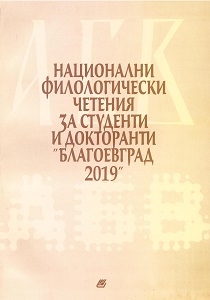
The proceedings include MA and PhD students’ research on philological problems presented during the annual academic conference at South-West University “Neofit Rilski”. The submissions were reviewed by the conference board. A national academic committee – specialists in linguistics, literature and translation, selected the best presentations. The published works were double-blind reviewed
More...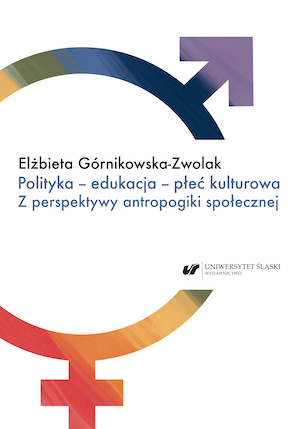
Politics is a ubiquitous term today. The author, a representative of social pedagogy (anthropogics), analyzes various approaches to politics, focuses on social and educational policy, looking for a place for gender politics. In her dissertation, she provides a critical insight into the educational policy in Poland after the 1989 political transformation. On the one hand, education is here understood broadly, also outside school, in the public space, from where messages about the educational dimension flow. On the other hand, the focus is directed to selected aspects of gender politics and education, which are critical to the development of girls and women, especially sexual education and reproductive rights. The end of writing the thesis coincided with the outbreak of the Revolution of Women (Autumn 2020), who called for democracy and their civil rights. The publication can help readers understand why this happened.
More...